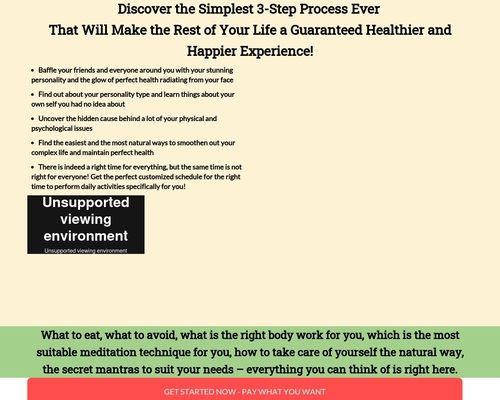Brain health is inseparable from your physical health. Mental and physical well-being is governed by the brain and vice versa. If you need to maintain optimal brain function as you age, right into old age, there is a week-long plan that will help you improve your brain health.
According to a report by the site time now news The World Health Organization’s definition of brain health is “a state in which each individual realizes his or her own abilities and improves their cognitive, emotional, psychological and behavioral performance to deal with life situations, in addition to the ability to solve crossword puzzles.” It is important to maintain your cognitive skills in the long term and this does not come by chance. It requires you to follow a healthy lifestyle.

One week routine for brain health
First day
Get an extra serving of fruit or vegetables: Research shows that flavonoids, the chemicals that give plant foods their bright colors, may help reduce frustrating forgetfulness and mild confusion caused by ageing, according to Dr. Deborah Blacker, professor of epidemiology at Harvard T. Chan General Health, Long-term results suggest that starting a diet rich in flavonoids early in life may be important for brain health.
the second day
Schedule a checkup for high blood pressure and diabetes: A study suggests that high blood pressure and diabetes impair brain function, and a study suggests that high blood pressure and diabetes cause changes in the brain that impair thinking and memory.
the third day
![A 7-day routine that will help you improve your brain health..take a walk and eat all your veggies]()
Walking for 10 minutes: Brisk walking is good for the aging brain, according to the newspaper The New York Times. Older adults with mild cognitive impairment showed improvement in blood flow and memory in the brain after a year-long aerobic exercise program, and regular exercise amplified the healthy flow of blood to their brains..
the fourth day
Go to bed 15 minutes earlier without sleep You cannot form or maintain the pathways in your brain that allow you to learn and create new memories Difficulty focusing and responding quickly School-aged children and teens, on average, need about 9.5 hours of sleep each night. Most adults sleep 7-9 hours a night, but after the age of 60, nighttime sleep tends to be shorter, lighter, and interrupted by frequent awakenings. According to the National Institute of Neurological Disorders and Stroke, research shows that chronic lack of sleep increases the risk of disorders including high blood pressure, cardiovascular disease, diabetes, depression and obesity..
The fifth day
![A 7-day routine that will help you improve your brain health..take a walk and eat all your veggies]()
Eat fish for dinner, get plenty of omega-3 fatty acids, especially DHA Docosahexaenoic acid, or DHA, has been linked to improved memory and learning and lower rates of cognitive decline, according to the Academy of Nutrition and Dietetics. If you’re a vegetarian, ground flaxseeds, walnuts, and chia seeds are other plant-based sources of other omega-3 fatty acids.
the sixth day
Stay away from alcohol A study by Oxford University with 25,000 British participants found that alcohol consumption tracks decreases in the brain’s gray matter as well as white matter, according to the website Forbes.com. Research has shown that alcohol consumption is definitely associated with an increased risk of dementia.
the seventh day
Get involved in volunteering Several studies from the Journal of Gerontology suggest that philanthropy improves this brain flexibility mostly because volunteering forces social bonds and frequent communication, the warm, fuzzy feeling you get from helping others is actually a good thing for you, according to reports. The Cleveland Clinic The joy of giving, sharing, and volunteering can give you health benefits such as lower blood pressure, increased self-esteem, reduced depression, lower stress levels, a longer life, and increased happiness and contentment.





